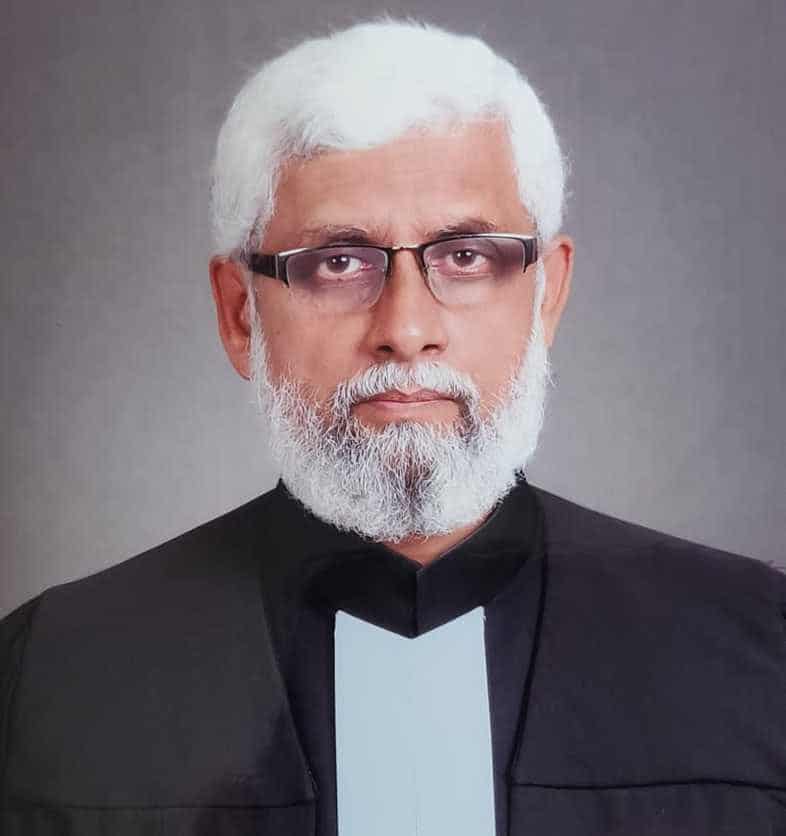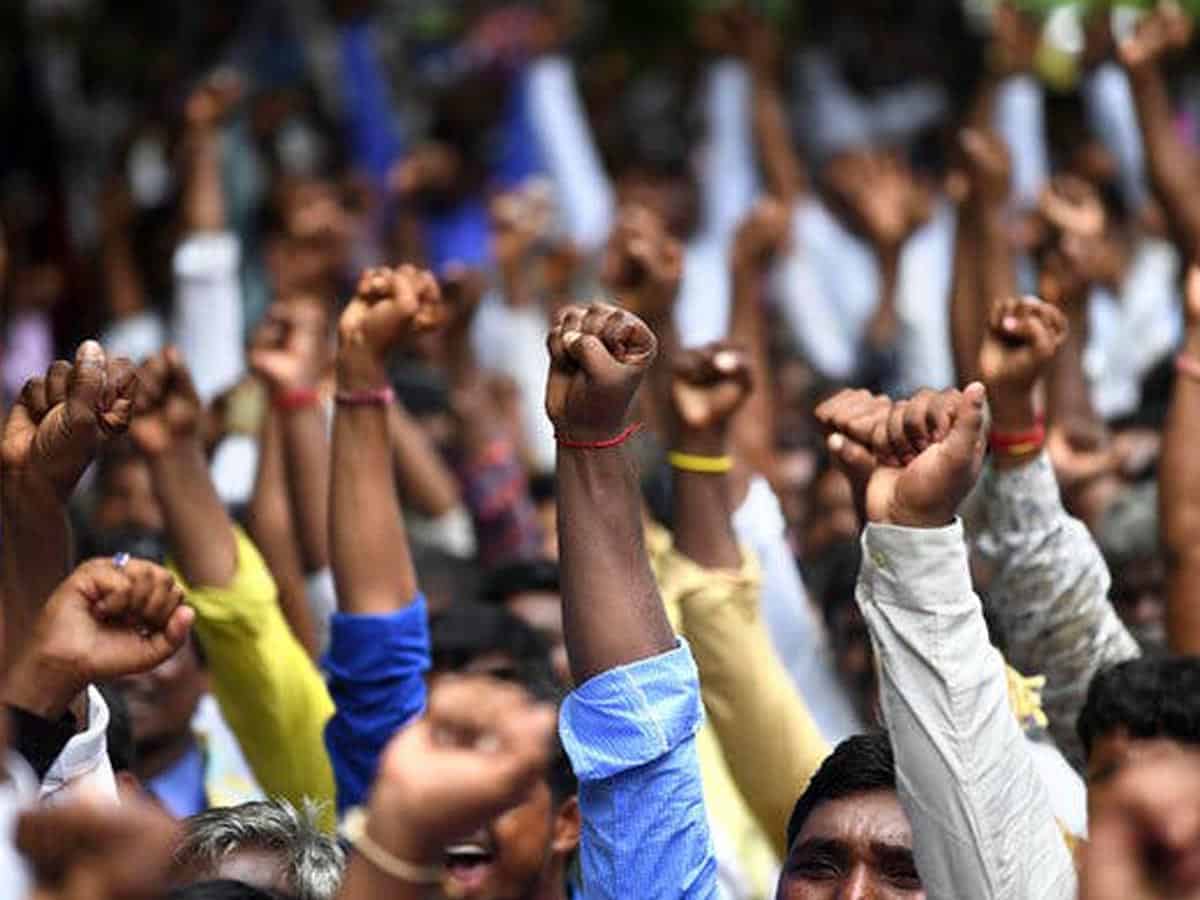
Provision and safeguards for Backward Classes and especially for SCs & STs have been incorporated in the Constitution of India in the social, economic, political, educational, cultural and services fields. Consider why “political”. Don’t give me that basic, oversimplified long periods of historical discrimination line. We all know that. India’s history did not stop with the advent of the Constitution. The Constitution marked a change. Our history did not stop.
And the history after 1950, suggests systematic as well as systemic discrimination against Muslims. That is okay. Discrimination, born of a feeling, correct or misconceived, that Muslims were responsible, is used as a retaliatory measure, though I doubt alleged guilt of any alleged discrimination meted out by past emperors can be laid at my doorstep, for despite what distorted versions of history may say, attacks and invasions had little if anything to do with Islam, and everything to do with expansionist trends in all empires of the time, from local chieftains to Rajput kings to Mughal emperors.

Article 46 Constitution of India provides, “The State shall promote with special care the educational and economic interests of the weaker sections of the people, and in particular, of the Scheduled Castes and the Scheduled Tribes ….” That’s good as effort to bring them up to par with others free from discrimination. Two points: One, the reservations were to last for ten years. If it was asserted then that reservations would continue for fifty years, no one would have agreed to such provisions. If it was a series of extensions due to pressure of benefited groups and political considerations, it is unfair to those who agreed for the provisions on the basis they would last one decade. If it was predetermined that it would be sold as for a decade but continued indefinitely, it was a Constitutional fraud. Two, since Muslims faced and continue to face discrimination and even hostility, in very many aspects of national life, now more even from private entities and individuals, should not similar protective-of-rights consideration be shown to them.
Come to think of it, will not reservation whether for SC, ST, or Muslim, adversely impact competitiveness, merit, leave the nation lagging behind? It will, but we have reservations, and while we have them, we can’t wish away the facts. So, we will merely leave questions for national intellects to ponder over, and move to a more critical aspect.
Reservation of seats for SCs/STs in local bodies of States/UTs, Legislative Assemblies of States and in Parliament are provided in the Constitution.
Article 243D Reservation of seats:- (1) Seats shall be reserved for (a)the Scheduled Castes, and (b) the Scheduled Tribes in every Panchayat and the number of seats so reserved shall bear, as nearly as may be, the same proportion to the total number of seats to be filled by direct election in that Panchayat as the population of the Scheduled Castes in that Panchayat area or of the Scheduled Tribes in that Panchayat area bears to the total population of that area and such seats may be allotted by rotation to different constituencies in a Panchayat.
243T. Reservation of seats:- (1) Seats shall be reserved for the Scheduled Castes and the Scheduled Tribes in every Municipality and the number of seats so reserved shall bear, as nearly as may be, the same proportion to the total number of seats to be filled by direct election in that Municipality as the population of the Scheduled Castes in the Municipal area or of the Scheduled Tribes in the Municipal area bears to the total population of that area and such seats may be allotted by rotation to different constituencies in a Municipality.
330. Reservation of seats for Scheduled Castes and Scheduled Tribes in the House of the People:- (1) Seats shall be reserved in the House of the People for (a) the Scheduled Castes; (b) the Scheduled Tribes except for the Scheduled Tribes in the autonomous districts of Assam; and (c) the Scheduled Tribes in the autonomous districts of Assam. (2) The number of seats reserved in any State or Union territory for the Scheduled Castes or the Scheduled Tribes under clause ( 1 ) shall bear, as nearly as may be, the same proportion to the total number of seats allotted to that State or Union territory in the House of the People as the population of the Scheduled Castes in the State or Union territory or of the Scheduled Tribes in the State or Union territory or part of the State or Union territory, as the case may be, in respect of which seats are so reserved, bears to the total population of the State or Union territory.
Panchayat, Municipality, Legislative Assembly, Parliament. We can go on quoting, but you’ve got the hang of it. Government makes policy. Policy requires implementation. An officer can be committed towards implementation. He can be casual towards it. He can be callous and do his best to disregard it. It is only if he is a stakeholder in the result that he will be committed enough to ensure the success of the policy, and the policy will see implementation. If he is not affected by the policy, it may very well not be there at all, for all he cares.
The Muslims are backward. There are Minority Welfare Departments. The welfare result: what is that, in relation to policy? Seven decades into the Constitution, they remain backward. Discrimination is felt in treatment by officials, alleged in treatment by judiciary, access to accommodation, in police investigations…the list is long. As an example, take any department that enforces law referable to its jurisdiction. If an offence is alleged violative of policy that guarantees rights of, for instance equal treatment, non-discrimination, access to accommodation, hospital treatment…of a Muslim qua a Muslim, at the hands of someone, may be even another Muslim, a person who identifies himself as a stakeholder in the enforcing of that policy is more likely to take necessary action than one who would not give a damn whether this victim gets or does not get what he is entitled to. Extrapolate, you will always get the same result.
Why are all those SC, ST officials, political office candidates, vested with rights to office, if not as a clear Constitutional recognition of the principle that if the policy of the State is to find effective implementation, not just lip service, the implementation of that policy must be in the hands of those who belong to the same group as the target group, those who identify with the group intended to be benefited by that policy?
Equal Opportunities legislation, Prevention of Communal Violence legislation, guarantees like D K Basu, political allocation of funds, budgetary allocation of Minority Welfare Departments, the expenditure of those budgets not allowing them to lapse so that that lapsing can be cited next fiscal as reason to scale down the particular budgetary allocation… see where it leads?
What is this peculiar spelling of MiDaS Touch? Well, I coined it from Minorities & Dalits getting their due as a healing touch to heal the nation of discriminatory unjust creation, and insensitive non-implementation, of beneficial policies. So, think about this: considering Constitutional recognition of the principle of representation, should not political offices and proportionate-to-population seats be marked for MiDaS in proportion to their populations, for effective implementation of safeguards to MiDaS?
Over to the readers.
Shafeeq R. Mahajir is a well-known advocate based in Hyderabad

